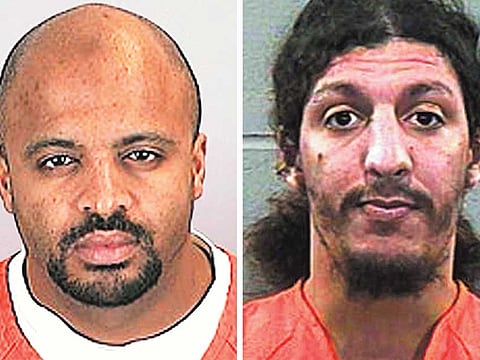Paris terror attacks prompt US rethink on visa waiver
Washington concerned over Europeans who may have fought in Syria travelling to the US

Washington: The recent terrorist attacks in Paris are prompting bipartisan legislative efforts to tighten the security of a programme that allows millions of foreigners, mostly from Europe, to travel to the United States without visas.
The visa waiver programme, begun in the mid-1980s to spur tourism and business travel, now includes 38 countries. Citizens from those nations can come to the US for up to 90 days, bypassing the in-person interview at a US consulate abroad traditionally required for a visa, though the travellers are still screened in a variety of other ways.
Conceived in a previous era when traditional European allies were not viewed as threats, the programme first raised flags after the September 11, 2001, attacks. Convicted September 11 plotter Zacarias Moussaoui, a French national, boarded a flight to the United States visa-free, as did “shoe bomber” Richard Reid, a British national. The Bush administration responded by tightening security requirements.
But the recent attacks that killed 17 people in France, combined with the influx of foreign fighters into Syria to fight for the Daesh and other groups, is triggering heightened concern. With at least 3,000 of those fighters coming from Europe, including an estimated 1,000 from France, some lawmakers fear that radicalised Europeans could return home, fly to the United States without visas and carry out attacks here.
Senator Dianne Feinstein, a leading Senate voice on national security, is planning to introduce legislation to strengthen the programme’s security features, though her office would not provide details.
“There’s no question in my mind that the Visa Waiver Programme is a weak link in our efforts to keep violent extremists out of our country and needs to be tightened up,” she said in a statement issued to The Washington Post.
In the House, homeland security committee chairman Michael McCaul has voiced similar concerns and recently co-sponsored legislation that would require the Department of Homeland Security (DHS) — which administers the programme — to consider additional steps to better screen travellers.
McCaul’s committee is investigating the programme as part of a broad probe into whether the Obama administration has done enough to stop the flow of foreign fighters.
With heightened anxiety across Europe about the threat from radical Islamist groups and the influx of fighters into Syria, “we do indeed believe there is a vulnerability to the United States,” said a House Republican aide, who spoke on the condition of anonymity to describe internal deliberations. The aide said the process of granting visas to people from other nations is “very thorough,” in contrast to the visa waiver programme, which collects only a limited amount of information about travellers.
Feinstein agreed, saying that unless a traveller is already a known or suspected terrorist, “the process to secure a visa waiver and travel to the United States is relatively simple.”
The Obama administration has acknowledged the potential threat from Daesh-trained fighters going home to Europe and then targeting the United States. “Of particular concern are Western passport holders,” Lisa Monaco, assistant to the president for homeland security and counter-terrorism, said in a September briefing for reporters.
Citing in particular French and British citizens, she said they constitute “a very potent mixture, and pose a potential threat if left unchecked to the homeland.”
But current and former DHS officials, while not denying a potential threat, said the security measures imposed starting in 2007 have substantially reduced it while maintaining the programme’s economic benefits.
Catron, the DHS spokeswoman, said the visa waiver programme’s online application — known as the Electronic System for Travel Authorisation — “has been an important security and vetting tool” that has allowed DHS to deny travel to some applicants, including more than 22,000 who applied using a lost or stolen passports.
In November, DHS added additional data fields to the system, including more passport information and other names or aliases the travellers may have used. The agency is considering additional security enhancements.
Under the programme, DHS is also sent electronic passenger manifests from airlines and commercial vessels traveling to the United States. Customs inspectors check them against a variety of security databases and the information provided by the traveller’s home country, a process described as thorough by current and former officials.
Nathan Sales, a Syracuse University law professor and senior DHS official in the Bush administration, said he thinks Feinstein is “100 per cent right about the threat. Absolutely we face and have faced for years a very significant threat from radicalised populations in Western Europe.”
“But the solution is not to kill the programme, and the solution is not to go back to the old visa-based system of screening passengers,” he said. “The solution is to strengthen the security features of the programme.”



